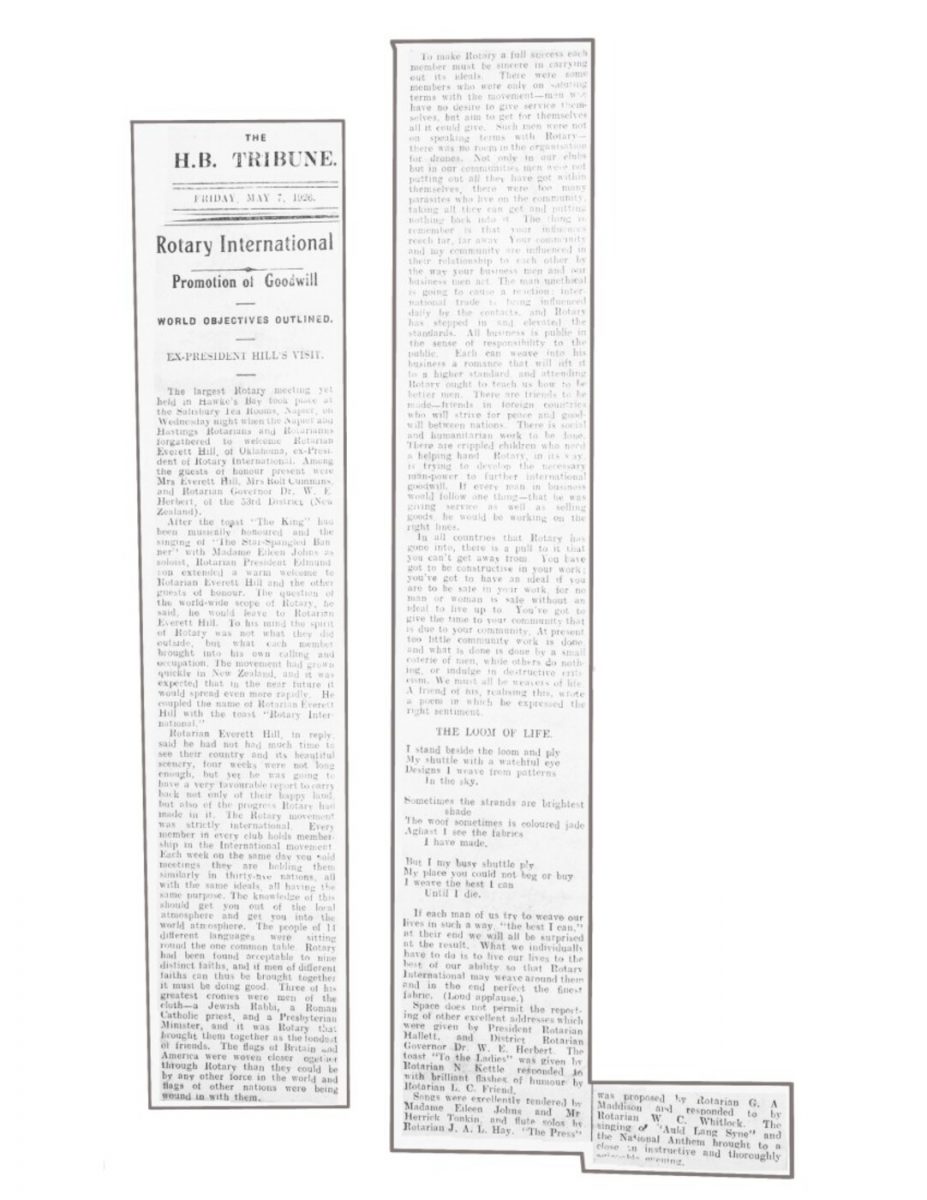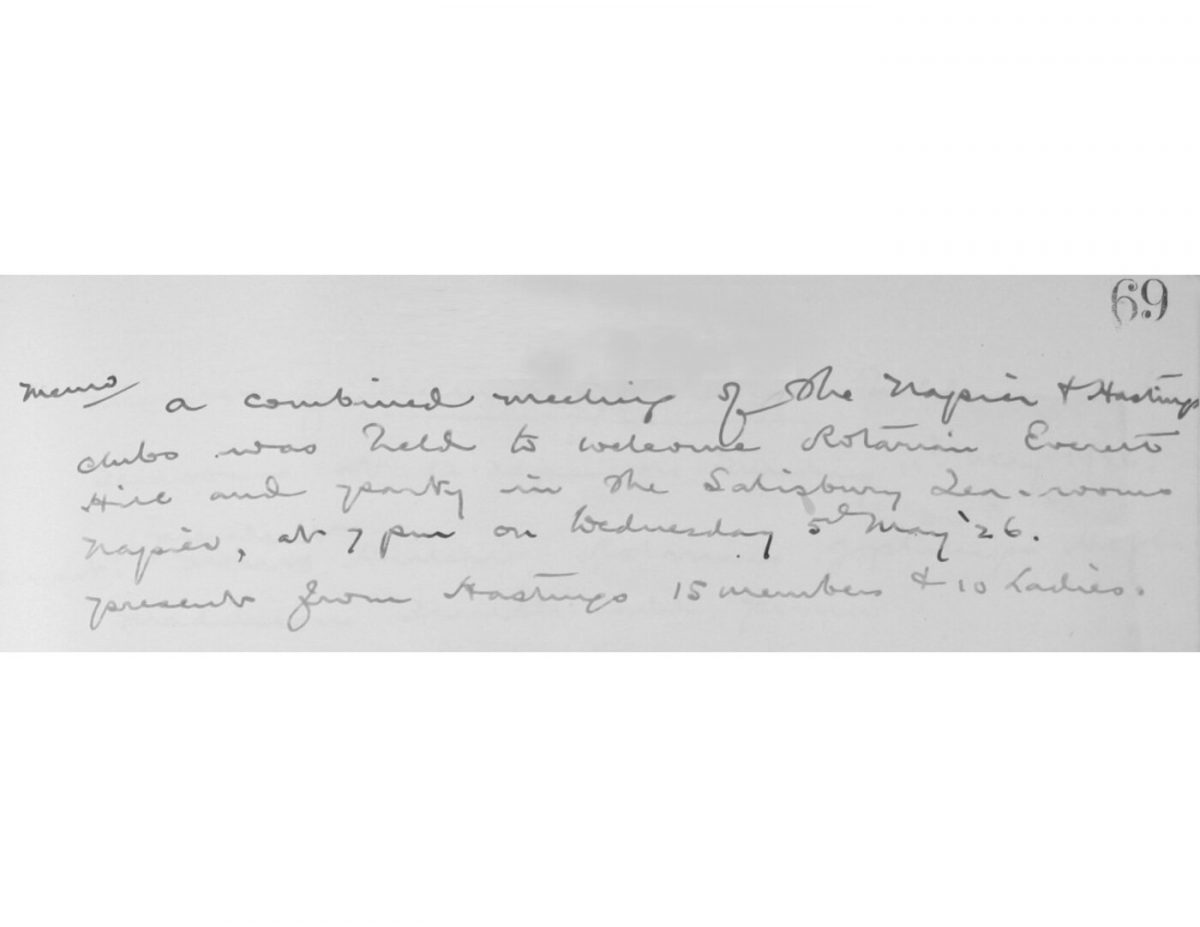Newspaper Article 1926 – Rotary International – Ex-President Hill’s Visit
Original digital file
HastingsRotary2039_Minutes_1924-1934_090-091.pdf
Non-commercial use

This work is licensed under a Attribution-NonCommercial 3.0 New Zealand (CC BY-NC 3.0 NZ).
Commercial Use
Please contact us for information about using this material commercially.✖
Can you help?
The Hawke's Bay Knowledge Bank relies on donations to make this material available. Please consider making a donation towards preserving our local history.
Visit our donations page for more information.
Subjects
Tags
Business / Organisation
Hastings Rotary ClubFormat of the original
Newspaper articleDate published
7 May 1926Publisher
The Hawke's Bay TribunePeople
- Mrs Rolf Cummins
- President Edmundson
- L C Friend
- J A L Hay
- Dr W E Herbert
- Everett Hill
- Mrs Everett Hill
- Madame Eileen Johns
- N Kettle
- G A Maddison
- Herrick Tonkin
- W C Whitlock












Do you know something about this record?
Please note we cannot verify the accuracy of any information posted by the community.